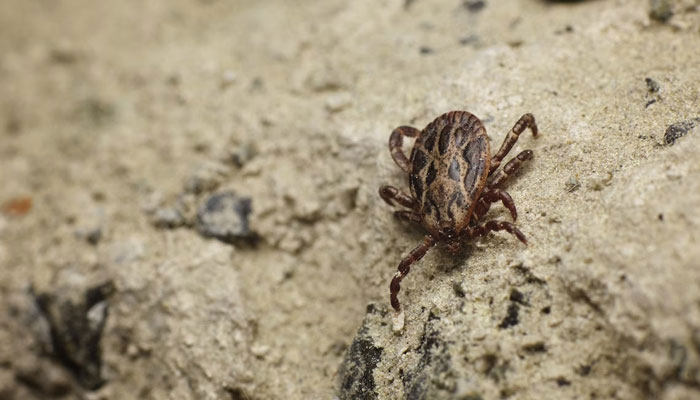Congo fever claims life of paramedic from Quetta
A 35-year-old paramedic from Quetta died due to Crimean-Congo Haemorrhagic Fever (CCHF) at the Sindh Infectious Diseases Hospital (SIDH) at NIPA, Karachi, on Friday, officials said, adding that four people, including a doctor from Baloshitan, had died due to the tick-borne infectious disease in Karachi so far.
“A 35-year old paramedic from Quetta, who was shifted to the SIDH Karachi in a precarious condition because of Crimean-Congo Haemorrhagic Fever (CCHF), died during treatment on Friday morning,” an official of the Sindh health department told the News.
Following the outbreak of the Congo fever in Quetta, Sindh Caretaker Health Minister Dr Saad Khalid Niaz established a monitoring room at the Sindh Director General Health’s office and also ordered establishment of isolation wards at different health facilities in tertiary-care health facilities.
“All required personnel protection equipment (PPE) should be made available to the healthcare providers at isolation wards while strict compliance with infection prevention and control guidelines should be followed at health facilities,” he said in his directives to control the Congo virus.
Officials in the health department said around 17 patients had been brought to Karachi from Quetta a few days back, of whom two persons, including a doctor, expired during treatment at a private hospital while some of them were discharged after they recovered.
In light of the recent Congo virus outbreak in Balochistan, Sindh Caretaker Chief Minister Justice Baqar on Friday instructed the provincial health and livestock departments to implement precautionary and prevent measures in the bordering districts of the province.
He expressed concerns about the Congo virus outbreak in Balochistan, emphasising potential risks for the bordering districts of Sindh, including Dadu, Shahdadkot, Kashmore and Jacobabad, due to their proximity to Balochistan and frequent cross-border movements.
Baqar highlighted that ticks from livestock and close contact with infected animals or humans are the main transmission routes of the Congo virus. He specifically directed the provincial health department and livestock departments to enhance surveillance in the bordering districts and tehsil adjoining Balochistan.
He further instructed the departments, along with the district administration, to initiate public awareness campaigns about preventive measures. This included promoting the use of insect repellents and protective clothing, as well as monitoring livestock markets, especially in border areas.
Justice (retd) Baqar urged the departments to coordinate with Balochistan’s health officials and other authorities for real-time updates.
-
 Kash Patel Fires FBI Officials Behind Trump Mar-a-Lago Documents Probe, Reports Say
Kash Patel Fires FBI Officials Behind Trump Mar-a-Lago Documents Probe, Reports Say -
 Martin Short's Daughter Katherine's Death Takes Shocking Turn As Terrific Details Emerge
Martin Short's Daughter Katherine's Death Takes Shocking Turn As Terrific Details Emerge -
 Patrick Dempsey Reacts To Tragic Death Of His 'Grey's Anatomy' Co-star Eric Dane
Patrick Dempsey Reacts To Tragic Death Of His 'Grey's Anatomy' Co-star Eric Dane -
 Sidney Crosby Injury News Shakes Penguins After Olympic Tournament
Sidney Crosby Injury News Shakes Penguins After Olympic Tournament -
 Yankees Honour CC Sabathia With No. 52 Retirement This September
Yankees Honour CC Sabathia With No. 52 Retirement This September -
 Cuban Government Says Boat Full Of Armed Men Fired On Border Guards, Killing 4
Cuban Government Says Boat Full Of Armed Men Fired On Border Guards, Killing 4 -
 Lily Collins Faces Intense Pressure After Landing Audrey Hepburn Role: Source
Lily Collins Faces Intense Pressure After Landing Audrey Hepburn Role: Source -
 FIFA World Cup Security Concerns Spike After Recent Cartel Violence In Mexico
FIFA World Cup Security Concerns Spike After Recent Cartel Violence In Mexico -
 Shamed Andrew Ordered To Curb Hobby: ‘It’s A Bad Look’
Shamed Andrew Ordered To Curb Hobby: ‘It’s A Bad Look’ -
 Cardi B 'no-nonsense' Move: Why She Distanced Herself From Stefon Diggs? Source
Cardi B 'no-nonsense' Move: Why She Distanced Herself From Stefon Diggs? Source -
 Metallica Announce 2026 ‘Life Burns Faster’ Las Vegas Sphere Residency
Metallica Announce 2026 ‘Life Burns Faster’ Las Vegas Sphere Residency -
 ‘From Dating Scams To Fake Lawyers’: OpenAI Bans ChatGPT Accounts Over Misuse
‘From Dating Scams To Fake Lawyers’: OpenAI Bans ChatGPT Accounts Over Misuse -
 Amy Schumer Reveals She Pushed Through Illness Mid-performance: 'Proud I Made It'
Amy Schumer Reveals She Pushed Through Illness Mid-performance: 'Proud I Made It' -
 Shamed Andrew Can No Longer Take The ‘heat’ Of His Actions
Shamed Andrew Can No Longer Take The ‘heat’ Of His Actions -
 Royals Adamant To Show Andrew Is ‘just One Bad Apple’
Royals Adamant To Show Andrew Is ‘just One Bad Apple’ -
 Jessie Buckley Reveals Why BAFTA Win Felt Extra 'special' With Cillian Murphy
Jessie Buckley Reveals Why BAFTA Win Felt Extra 'special' With Cillian Murphy




